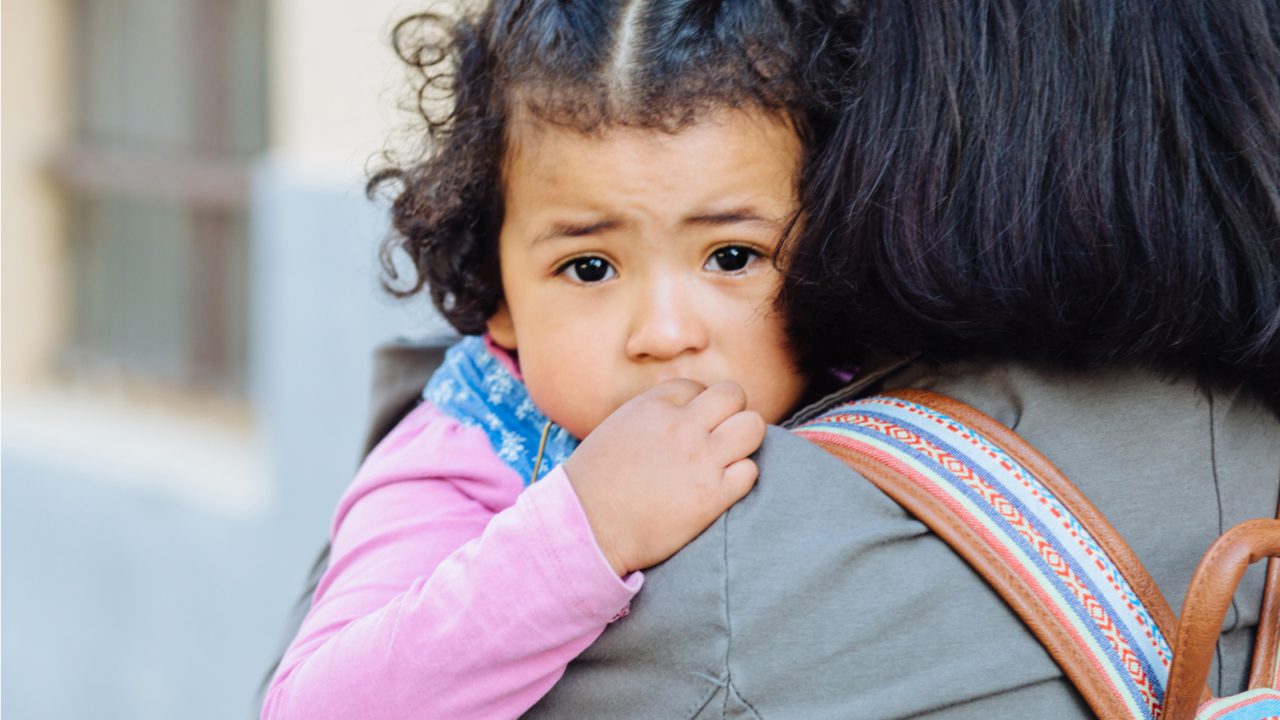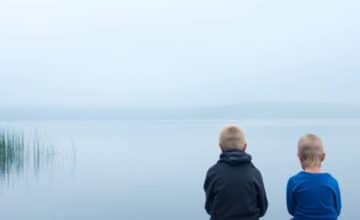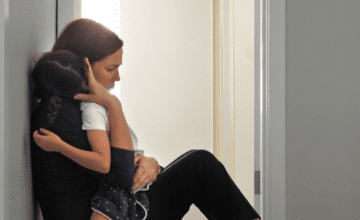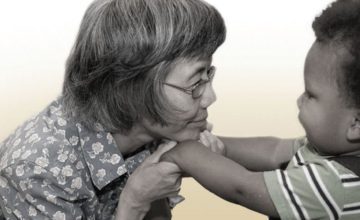Mass shootings and everyday gun violence involving young children is heartbreaking and all too common. We share the following resources to help parents and professionals meet the unique needs of infants and young children and address the effects of trauma in early childhood.
Family and community violence, natural disasters, and traumatic life events touch the lives of even the youngest children. Even when families are not directly involved, they can be affected through media coverage of frightening images and feel a heightened sense of vulnerability and stress.
The first step in taking care of children is taking care of yourself. When you’re anxious or worried, your child knows it. The best thing adults can do for children is find comfort in each other’s presence.
Resources to Help Families Process Grief and Guide Conversations
Young children are complex human beings who react to situations in different ways depending on their age, stage of development, and temperament. Your sensitive response can help your child cope during a difficult time.
This PDF helps adults understand what children are thinking and feeling, and suggestions for how to help them cope during a difficult time.
A candid conversation about how adults, whether caregivers, early education professionals, or advocates, can navigate conversations with young children to support the overall well-being of children and of themselves.
As hard (and painful) as it can be to answer questions about the death of a loved one, it’s an important way that toddlers cope with grief and death and cam help them develop an understanding of what has happened.
A resource to help plan for the emotional response to potential disasters, and guidance for supporting young children and their families following a community-wide disaster.
Mindfulness practices have been proven to reduce stress, bolster overall health and psychological functioning, and assist a return to wellness following adversity.
Featured Book
Child psychologist and ZERO TO THREE Board Member, Dr. Chandra Gosh Ippen, published Once I Was Very Very Scared to help children and grown-ups (caregivers, teachers, and early childhood professionals) understand how stress can affect children and ways to help them.
Recommended on NPR by Dr. Melissa Brymer of UCLA/Duke University National Center for Child Traumatic Stress, she cites how animals throughout the book offer the opportunity for kids to point to different feelings they may have and each animal’s different way of coping with their feelings.
Free PDF downloads of the book and related resources such as finger puppets and coloring sheets are available in both English and Spanish.
Find more recommended books for families facing tough times.
Young children are complex human beings who react to situations in different ways depending on their age, stage of development, and temperament. Your sensitive response can help children cope during a difficult time.
Partner Resources
- What to Say if a Kid Asks, “What Does It Feel Like to Die?” and Other Questions About Mass Shootings
Psychologist and ZERO TO THREE Board Member Dr. Chandra Ghosh Ippen explains how children may process death differently, and why it’s important to think of yourself as a “catcher” in difficult conversations.
Save the Children’s emergency response experts offer tips to help you talk to children about school shootings.
Sesame Street in Communities provides a variety of tools for children and families directly affected by violence in their own neighborhoods.
Children and families count on caregivers to keep children safe when the unexpected happens. Child Care Aware of America has resources to help adults respond when emergencies arise.
These National Child Trauma Stress Network fact sheets offer strategies for parents and caregivers in coping with trauma, provides insight into common reactions children and families may be experiencing after a mass violence event, and outlines what they can do to take care of themselves.
This booklet by Dr. Joy D. Osofsky, PhD and Howard J. Osofsky, PhD supports parents and children in understanding reactions to trauma and healing from traumatic events.
Children always look to their parents and caregivers for a sense of safety and security — even more so in times of crisis. UNICEF provides eight tips to support and comfort children.




